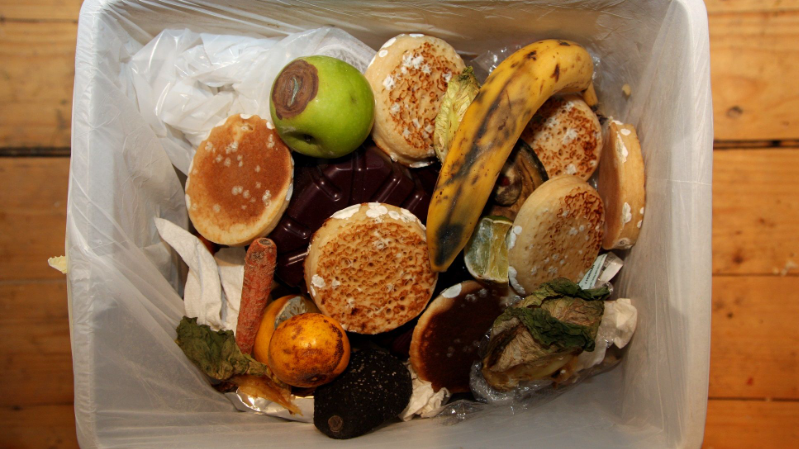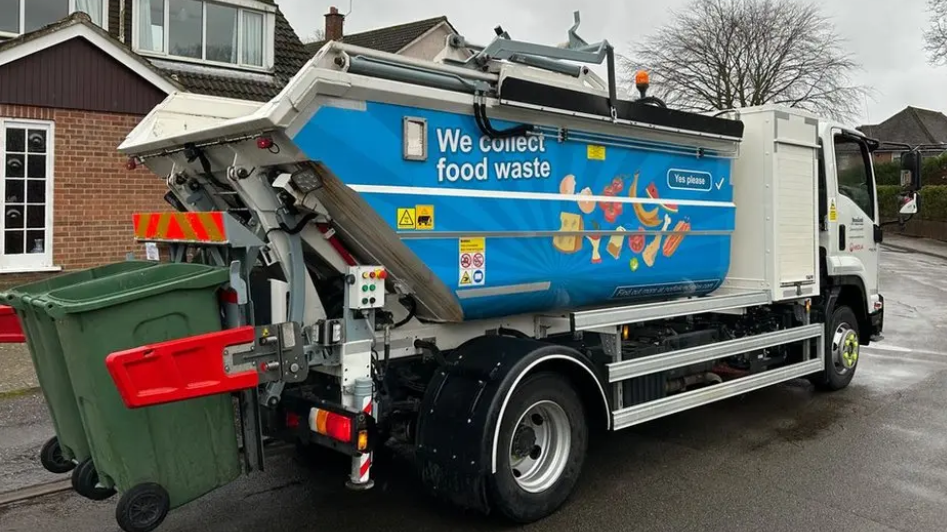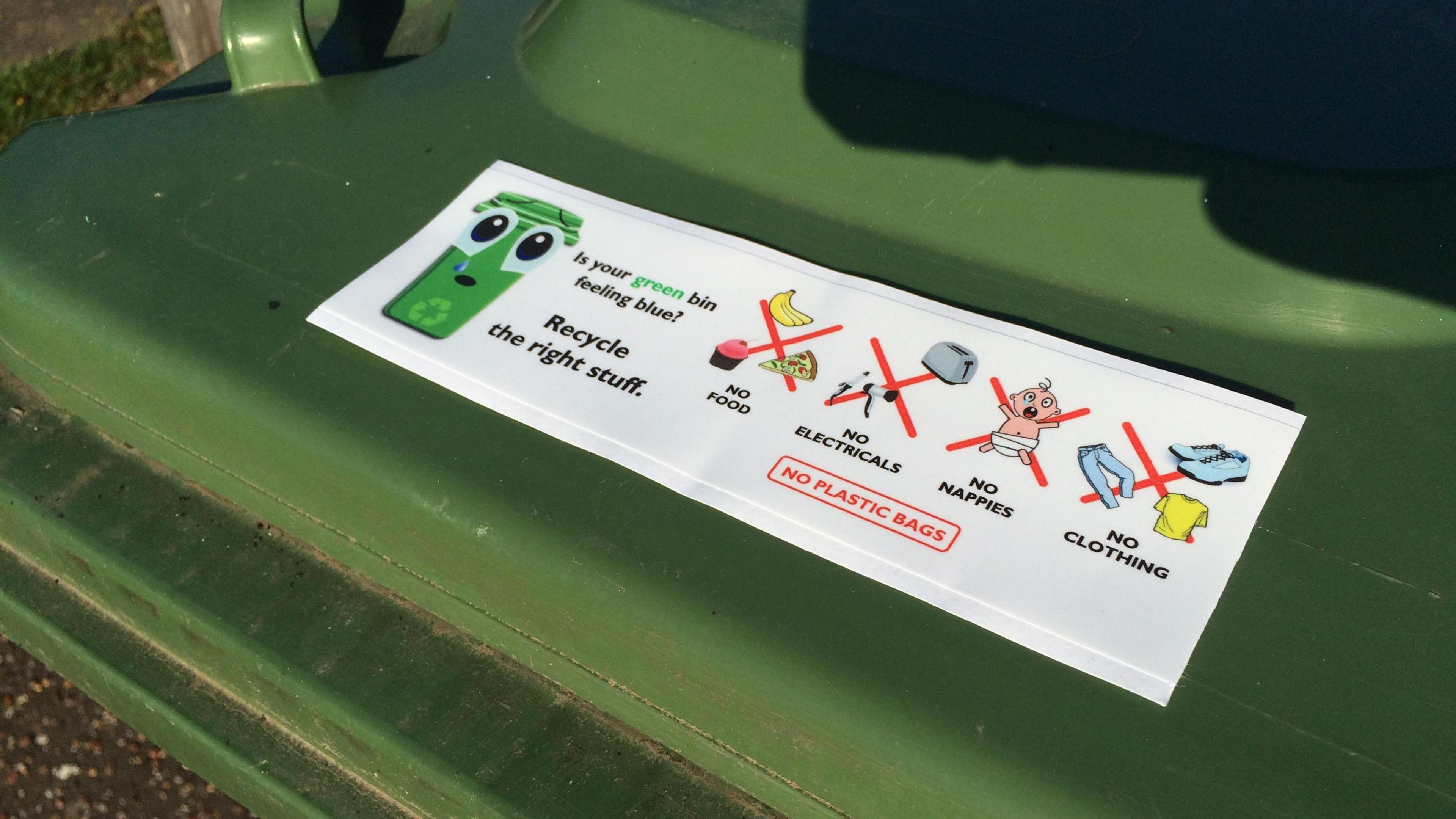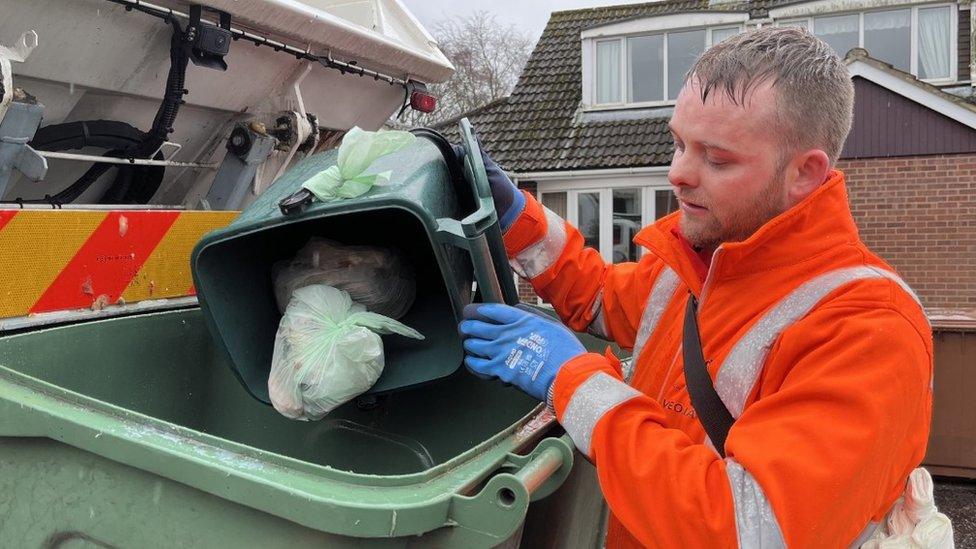Spend of £2m on food waste collections approved

Food waste collections currently only take place in parts of Norfolk
- Published
Almost £2m will be spent so that homes can have weekly food waste collections, a council has decided.
Councillors in North Norfolk voted to spend the money so that caddies can be sent to all homes in the district, with the majority of the funding also being used to buy new collection trucks.
From next year, every local authority in England will be required to collect food scraps as part of efforts to streamline waste management.
On Wednesday night, a meeting of North Norfolk District Council heard that while it had received £1.45m from the government to help with costs, the remaining money would have to come from council reserves.
A report for councillors, external said the bulk of the money would be spent on up to 14 new vehicles, costing around £100,000 each.
It also heard delays on the delivery of equipment were possible, with many other local authorities looking to buy at the same time.

Councillors were told extra vehicles were likely to cost between £105,000 and £112,000 each
In Norfolk, three out of seven district councils currently offer food waste collections – with Breckland, Great Yarmouth and South Norfolk due to introduce them alongside North Norfolk.
Speaking before the meeting, Callum Ringer, Liberal Democrat cabinet member for environmental and waste called for ministers to provide full funding.
"If the government want to roll services out, they should be able to fund it properly," he told the Local Democracy Reporter Service (LDRS).
He also warned that "with all of these councils needing these vehicles at once, there may be some issues."
The Department for Environment, Food & Rural Affairs (Defra) said it was "investing £300 million to support councils on weekly food collections".
"These reforms will cut the cost for waste management by over £200 million by 2035," a spokeswoman added.
What happens to collected food waste?
The Waste and Resources Action Programme charity estimated that 6.4 million tonnes of food waste was generated, external from UK households a year in 2021/22, with 4.7 million of that classified as "edible waste".
The remainder was deemed "inedible or unavoidable".
Food scraps can be turned into energy at bio digestion plants, creating biogas to generate heat and power - as well as fertiliser for agriculture.
This helps to reduce the amount of methane released into the atmosphere through food waste being dumped in landfills.
Get in touch
Do you have a story suggestion for Norfolk?
Follow Norfolk news on BBC Sounds, Facebook, external, Instagram, external and X, external.
More stories like this
- Published14 January

- Published17 July 2024

- Published24 February 2024
